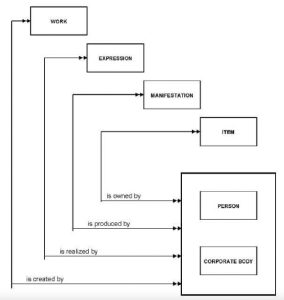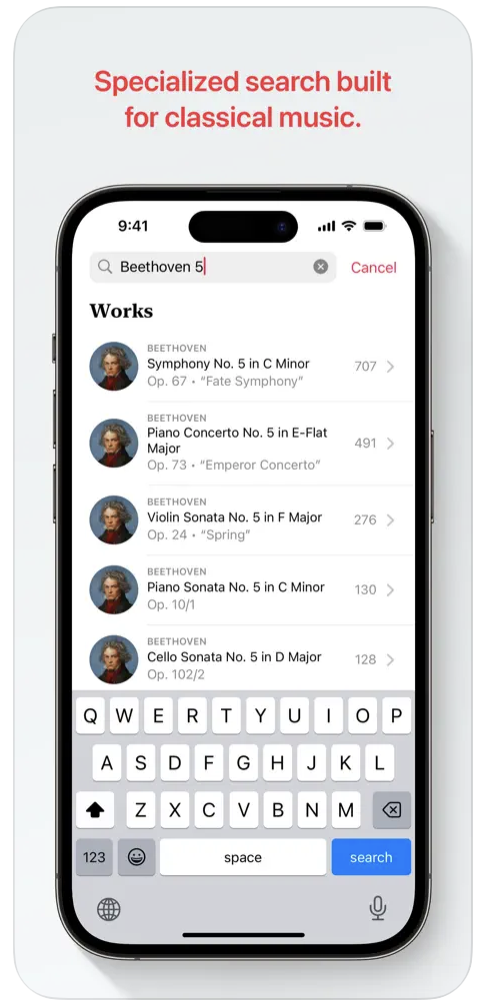Yesterday I saw the announcement that soon an additional app for Apple Music will be launched, 1 that is geared towards dealing with classical music in a way that is much more fit-for-purpose than generic music apps such as Apple Music, Spotify and what not.
This is a big deal for me, being a classical music enthousiast, but also professionally, being in the data management profession. In this blog I will describe why froma data management view this is so interesting.
Metadata
Whoever follows my data management trainings know that I mention a few things many times and metadata is 1 of them. Metadata is so important to enable a lot of capabilities that makes working with data, but things in general so much easier and better. Apple Music Classical is different from Apple Music in that they will have more metadata, more accuracy, more granularity and with this enable more capabilities, which I discuss under the section ‘Search, explore and learn’.
My guess is that getting the metadata good enough has been taking the bulk of the work that Apple has been doing over de past year and a half since they took over Primephonic. Metadata seems simple, but getting it right is not and requires good planning and a lot of work.
Curator or data steward?
For a music catalogue (and with a little imagination), a curator is actually what a data steward is within an organisation. People who know the content and are involved at the meta-level. Sometimes with metadata, sometimes with playlists, sometimes with tying data together for all kinds of new use cases.
The value of your data increases enormously through the work of these people. They bring in knowledge and make everything even more useful, even easier and even better. No wonder that in the DAMA DMBoK and also in my training courses, we keep talking about this role.
Taxonomies
A taxonomy is a knowledge structure, a way of classifying all items that is meaningful to the user. 1 taxonomy is not a taxonomy. You want multiple classifications. 1 by genre, 1 by orchestral instrumentation, 1 by voice, 1 by … There are lots of ways to access data and different users use different ways, but also the same user can change tactics and have a need to use a different taxonomy as well.
Standards and integration
Standards are very important when you want to get data from so many different music publishers together into something that acts as the central unified repository.
This means setting your standards for the data model, for the content of attributes. I think there must have been a lot of talk at high level with the music publishers to get this right. Any changes need work and retrospectively changing the metadata of your library is not nice and very often not even feasibly.
It also means taking into account all the existing, de facto and local standards and working with what there is, more than being able to start afresh.
Data model
The data model really defines a lot of knowledge about this subject. In the world of cataloguing for libraries, there is a well known model called FRBR. A more conceptual representation is below. It was created and is maintained by IFLA, the International Federation of Library Associations and Institutions.

This data model is interesting because it identifies that an intellectual work, such as the 5th symphony of Beethoven can have so many expressions. It can be with different instruments, by different artists and orchestras. In addition, and here we have a real issue with music and all the compilations that are around, it also give the possibility to link all of these together. In short, there is much more structure.
Does Apple use this model? As input or under the bonnet? I don’t know, but they will have something similar, that’s for sure.
Links
An important part of the model is also that the links give mening. The FRBR model knows about people and organisations. These can have different roles, such as a person is the composer of a work (‘is creator of’), or an organisation performs a work (‘is realised by’ and now not for that work, but for the manifestation).
Data quality
Data quality will make or break the new Apple Music Classical app. Data quality has different dimensions and is a bit more interesting than just ‘good’ or ‘bad’.
| 1 | Accuracy | Is data equal to the ‘real life’ value? |
| 2 | Completeness | What data is missing or unusable? |
| 3 | Consistency | What values give conflicting information? |
| 4 | Currency | What value is out of date? |
| 5 | Precision | Level of detail in the data element |
| 6 | Privacy | Does the data need restricted access? |
| 7 | Reasonableness | Does data meet reasonable expectations? |
| 8 | Referential integrity | All child records must have a parent |
| 9 | Timeliness | Difference between when data is available and needed |
| 10 | Uniqueness | Are there (unwanted) duplicates in the data? |
| 11 | Validity | Is the data within bounds of its domain? |
These are the most common data quality dimensions and are also described in the DAMA DMBoK for data management professionals.
I can imagine that Apple had a tough time getting this to the level where they thought we would be happy with.
Search, explore and learn
Why are we doing all this: a new app, a load of work on the metadata? It is all because we classical music lovers need more than a standard way to locate something that we know it exists.
I have written a post on this topic on LinkedIn in 2015 that is still current.

These 3 things is what classical music enthousiasts do more than popular music enthousiast do. It is all about the use cases. In the pop scenario, you know, you heard about an artist, just want to find the latest album or what they did together with another artists and bam, you have it.
This is also true for classical music, but many interested in classical music also want to take the next step. Romantic era music, what does it encompass, who are the composers, what instruments, which ensembles focus on this music, etc. We want to explore, we want to learn and see what else is there.
I am very bad in the sense that I will spend hours trying to decide which performance of a single work I like the best. I first want to know what is available, sample it, make up my mind what I liked and then conclude who my favourite performer is.
High expectations
Are my expectations high? I think so. I know what is possible, the data is the hard part and I really hope (for my own sake but also yours) that they have managed to do all this work and that it will pay off.
March 28, 2023!

